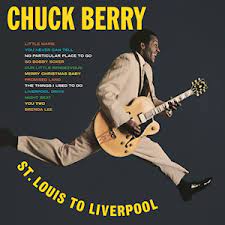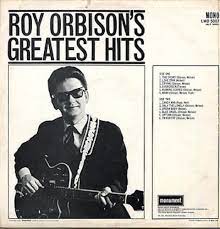Pricing: $3.25ea OR any 10 for $10
(use code "Any10410" at checkout)
Paid Requests for $25ea
(comes with any 8 freebies -> so 9 for $25)
100's Of Free Demos & Chord Sheets
Greatest Songs Of The 60s
On The Acoustic
Welcome to my greatest songs of the 60s page where you'll find a mix of great 60s songs for acoustic covering Dion, The Rooftop Singers, The Classics IV and The Mamas & The Papas.
Help yourself to the free chord sheets and demos and don't forget to check out all of the other great 60s artists and bands from the "60s" link in the breadcrumb trail above.

Jump links to quickly access to the greatest 60s songs.
Greatest Songs Of The 60s
Lyrics, Chords, Demos & Tutorials
1. Blues Comin On - Dion
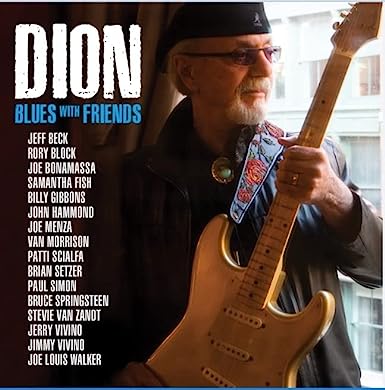
Blues Coming On is track from Dion's 2020 album entitled "Blues With Friends". This track is one he recorded with blues artist Joe Bonamassa. The album has 14 collaborations with many great artists.
To my knowledge this song was never released as a single.
Jump To Top
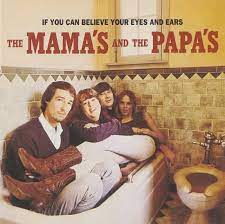
California Dreaming an iconic song released in 1965, has become synonymous with The Mamas and The Papas' signature sound. It was featured on their album "If You Can Believe Your Eyes and Ears," released the same year. The song achieved remarkable success on the music charts, reaching the 4th position on the Billboard Hot 100 in the United States and the 23rd position on the UK singles chart.
"California Dreamin'" was penned by John Phillips and Michelle Phillips, two integral members of the band. Their inspiration for the song stemmed from a winter visit to New York City, where the desire for California's warmth and beauty during the chilly East Coast winter gave birth to this enduring classic.
Over the years, "California Dreamin'" has been covered by a multitude of artists and bands, attesting to its timeless appeal. Notable covers include renditions by Barry McGuire, Bobby Womack, José Feliciano, and even the Beach Boys. The song's universal theme of longing for a better place and time has resonated with artists from diverse musical genres.
- Drop D Tuning: No
- Capo: 3rd fret
- Rhythm: down down up down up down up will work but that's not exactly what I'm playing here as I'm using up stroke to accent the song
- Picking: Yes
- Chords: Am, Esus, G, F, E, C, E7
Jump To Top Of Mamas And The Papas Music
3. Creeque Alley
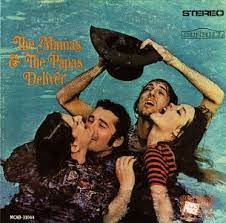
Creeque Alley released in 1967 as part of their album "Deliver," is a distinctive song in The Mamas and The Papas' repertoire. Unlike their chart-topping singles, "Creeque Alley" wasn't released as a single and didn't chart separately. However, it played a crucial role on their "Deliver" album, which reached No. 2 on the Billboard 200 chart, showcasing the album's commercial success.
Written by John Phillips and Michelle Phillips, two integral members of the band, "Creeque Alley" is an autobiographical narrative that offers a candid glimpse into the formation and early experiences of The Mamas and The Papas. The song vividly describes the group's struggles, triumphs, and their collective journey in the music industry.
What makes "Creeque Alley" particularly significant is its storytelling quality, providing an engaging account of the band's history. The song is praised for its unique narrative approach and its portrayal of the challenges faced by the group during their formative years.
It features references to the diverse backgrounds of the members, including John Phillips' time in the Navy and Michelle Phillips' transition from California to New York. The song's intricate harmonies and its place in the cultural and musical context of the 1960s add to its historical and artistic significance.
- Drop D Tuning: No
- Capo: No
- Rhythm: root down bass up down up and repeat
- Picking: No
- Chords: B7, E, Gb, D
Jump To Top
4. In The Still Of The Night - Dion And The Belmonts
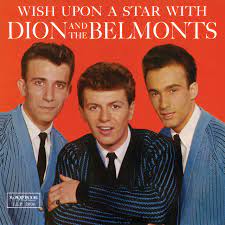
In The Still Of The Night was released as a single by Dion And The Belmonts back in 1960 and reached #38 in the US. This is a remake of an old Cole Porter song originally released in 1937. There is another song with the same name but a totally different song.
This version features Dion's
distinctive vocals and the group's signature harmonies, and it has
become a classic example of doo-wop music. The song's nostalgic lyrics
and slow tempo are perfectly suited to the group's style, and their
recording remains a beloved example of the doo-wop genre.
The song can be found on the album "Wish Upon A Star with Dion And The Belmonts.
- Drop D Tuning: No
- Capo: 3rd fret
- Rhythm: root down up root up down up and repeat
- Picking: No
- Chords: D, Em, A7, Dm/Cb, Dmaj7, Bm, G, Gbm, Gbm/F, Gbm/E, Dmaj7/D+, Gb, C, B7
Jump To Top
5. Monday Monday
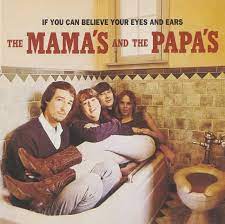
Monday Monday was released in 1966 and is one of The Mamas and The Papas' most iconic songs. It was featured on their album "If You Can Believe Your Eyes and Ears." The song achieved remarkable success on the music charts, making it a memorable part of their musical legacy.
In the United States, it soared to the top of the Billboard Hot 100, securing the No. 1 position, while also reaching No. 3 on the UK singles chart. Written by John Phillips, the song captures the universal feeling of the start of the workweek, making it relatable to audiences worldwide.
Over the years, "Monday, Monday" has retained its popularity, becoming one of the band's signature hits. Its catchy melody and harmonies exemplify The Mamas and The Papas' distinctive sound, making it an anthem of the 1960s.
The song's enduring appeal is a testament to the band's impact on the folk-rock genre.
- Drop D Tuning: No
- Capo: No
- Rhythm: down down up down down up down up and repeat will work
- Picking: No
- Chords: G, C, F, A#, D7, Gadd11, A
Jump To Top
6. Ruby Baby - Dion
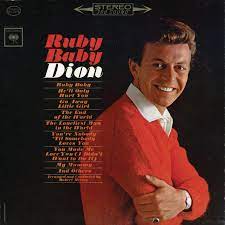
Ruby Baby is a song written by Jerry Leiber and Mike Stoller and originally recorded by The Drifters in 1956. However, it was Dion who had a major hit with the song in 1963 when he recorded his own version, titled "Ruby Baby". Dion's recording of the song features a more uptempo arrangement than the original, with a driving beat and energetic horns.
"Ruby Baby" became a top 5 hit for Dion, reaching #2 on the US Billboard Hot 100 chart, and helped solidify his status as one of the top artists of the early 1960s. The song's catchy melody and Dion's passionate vocals have made it a perennial favorite, and it has been covered by numerous artists over the years.
In addition to its commercial success, "Ruby Baby" is also notable for its role in the evolution of rock and roll, as it helped bridge the gap between the doo-wop and R&B styles of the 1950s and the more guitar-driven sound that would dominate the 1960s. Del Shannon, Bobby Darin and The Beach Boys are just a few artists who have covered this one.
- Drop D Tuning: No
- Capo: No
- Rhythm: down up down up and repeat with some walkin bass
- Picking: No
- Chords: A, G, D
Jump To Top
7. Runaround Sue - Dion

Runaround Sue is one of Dion DiMucci's most famous and lasting hits. It was released in 1961 and became a #1 hit on the US Billboard Hot 100 chart, as well as a top 20 hit in several other countries. Dion co-wrote this one and was
a hit after he went solo from The Belmonts.
The song's catchy melody and upbeat tempo, coupled with Dion's distinctive voice and style, made it an instant classic. The lyrics tell the story of a woman named Sue who is known for being unfaithful and playing with men's hearts, earning her the nickname "runaround Sue".
The song can be found on the album of the same name.
- Drop D Tuning: No
- Capo: 2nd fret
- Rhythm: down down up down up down up and repeat
- Picking: Yes a few riffs
- Chords: C, Am, F, G
Jump To Top
8. Spooky - The Classics IV
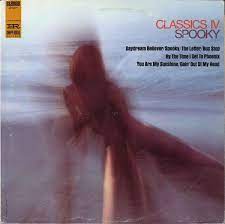
Spooky was first recorded as an instrumental in 1967 but lyrics were added for The classics IV version which was released in 1968 and reached #3 in the US.
The track is from the album of the same name.
- Drop D Tuning: No
- Capo: No
- Rhythm: down down up down down up down up and repeat
- Picking: Yes
- Chords: Em7, A6, Em7, B7, Bbdim
Jump To Top
9. The Wanderer
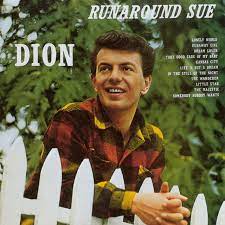
The Wanderer was also a song released from the "Runaround Sue" album and written by long time friend Ernie Maresca. Dion used the same backup singers known as the Del-Satins for this track as he did with Runaround Sue.
"The Wanderer" is another classic hit by Dion DiMucci. It was released in 1961 and became a top 5 hit on the US Billboard Hot 100 chart, as well as a hit in several other countries.
"The Wanderer" has been covered by numerous artists over the years and has appeared in numerous movies and TV shows, cementing its place in pop culture history. The song's combination of catchy melody, energetic rhythm, and vivid storytelling make it a timeless classic of the rock and roll genre.
- Drop D Tuning: Yes
- Capo: No
- Rhythm: down up down up and repeat
- Picking: Yes
- Chords: D, A, G, A7, E7
Jump To Top
10. Traces - The Classics IV
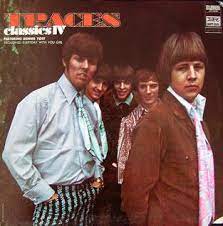
Traces became the Classics IV highest charting song peaking at #2 in both Canada and the US back in 1969.
The groups other bit song was "Stormy" which reached #5 on the charts.
- Drop D Tuning = No
- Capo = No
- Rhythm = some arppegio, some chop strumming and root down up root up down up in this one
- Picking = Yes
- Chords = D, Gbm, Am, B7, Bm, Bm/A, Bm/Gb, Bm/G, A+, D+, Em, A7sus, A7, C, G6 11#3, Dmaj7
Jump To Top
11. Walk Right In - The Rooftop Singers
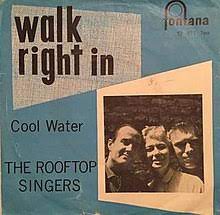
Walk Right In is an old blues tune from 1929 that was revived in 1963 by a group called Rooftop Singers who had a huge #1 in several countries with their re-make.
The song is on their album of the same name.
- Drop D Tuning = Yes
- Capo = 1st fret
- Rhythm = root up down up with riffs all through the song
- Picking = Yes
- Chords = G, E7, C, C7, A7, D7
Jump To Top
12. You Were On My Mind - We Five
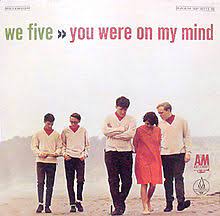
You Were On My Mind was a folk song originally by Canadian artists Ian and Sylvia Tyson. We Five turned it into a pop hit in 1965, scoring a #1 on the US charts.
The track can be found on the album of the same name.
- Drop D Tuning: No
- Capo: 2nd Fret
- Rhythm: all down strokes
- Picking: No
- Chords: D, G, A, Em, Gbm, Gb, B7, E, Abm, Gbm, Ab
Jump To Top
Thank you stopping by to visit my greatest songs of the 60s page and I hope the info here was helpful.
If you liked this Dion page you might also like ... (click images)
Popular Songs From The 60s
